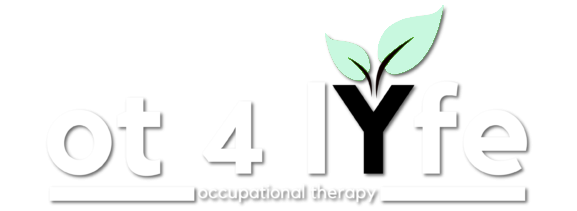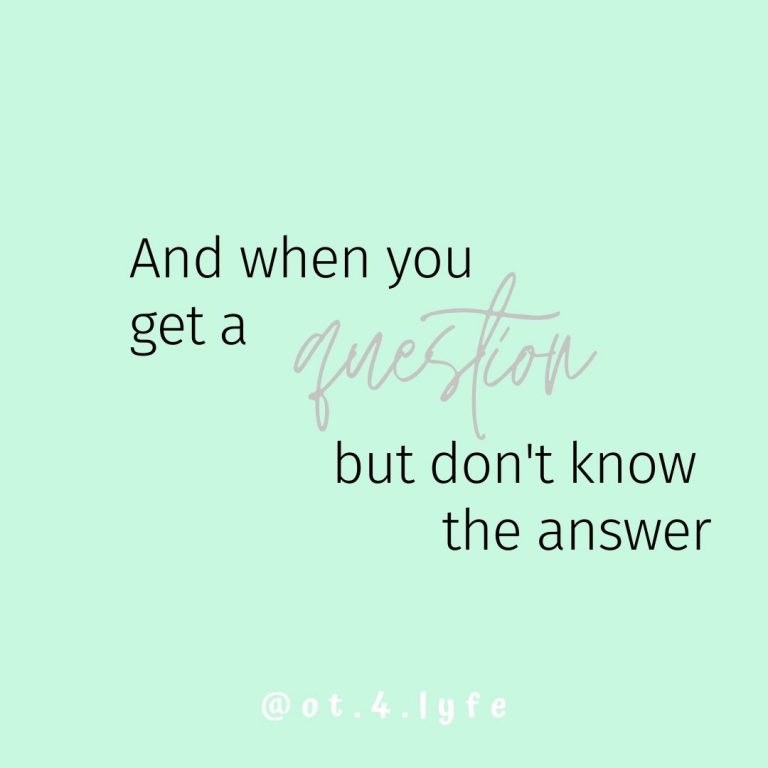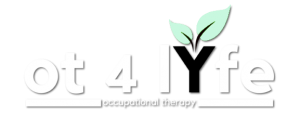What do you do?
Yesterday I wrote a post about asking all the questions and the importance of asking questions to further your own learning regardless of where you are on your OT journey.
And then the amazing Amirra from @marvelousmirracles.ot reminded me of the other half of this equation.
What happens when you get asked a question and you don’t know the answer.
Let’s say a client asks you something that you are unfamiliar with. Or your supervisor asks you something that you don’t know the answer to.
You may feel like you need to have an answer or that you should know it and it might make you uncomfortable that you don’t.
But honestly, it’s okay to not know the answer. It’s 100% okay to tell your supervisor or client, “That’s a great question. Let me do some research and get back to you.”
We put so much pressure on ourselves to know “everything” and realistically we can’t and won’t regardless of how much experience we have.
With more than 12 years in the field of occupational therapy, I still get questions on a daily basis that I don’t have the answer to.
But that doesn’t mean I can brush it off that I don’t know it. It means that I need to dig deep and utilize my resources to come up with the answer. And if I can’t figure it out completely, I need to be able to point my client in the right direction or refer them to someone who might know the answer.
So yes, ask all the questions, but when you get a question you don’t know the answer to, it’s ok.
Take some time. Do your research. And figure it out to the best of your ability.
Have you been asked a question and didn’t know the answer? How did it make you feel? How did you navigate this experience? Share your thoughts below.



2 Responses
I think people respect you more when you say “I don’t know.” It may seem like weakness, but when you say “I don’t know” it shows honesty, humility, and kindness toward others.
Completely agree! And especially if you say “I don’t know”, go and do your research, and then come back with a response it really shows that you are invested in your client’s therapeutic journey.